Building Assertiveness Skills: Top 12 Books & Workbooks
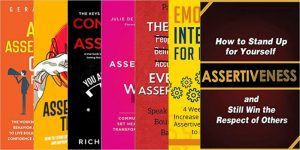 Have you ever been told you need to speak up?
Have you ever been told you need to speak up?
To please other people, do you agree with them despite it not being in your own best interests?
If these statements apply to you, you may be struggling with being assertive.
Assertiveness training is designed specifically for individuals who have trouble communicating their needs. It starts with improving an individual’s beliefs through building self-esteem and personal confidence.
In addition, assertiveness training focuses on emotional awareness, which results in individuals having more fulfilling personal relationships and feeling more secure (Parray & Kumar, 2017).
This article introduces a selection of books that explain the concept of assertive communication and behavior. It also recommends workbooks and exercises to improve your ability to communicate more assertively.
Before you continue, we thought you might like to download our three Work & Career Coaching Exercises for free. These detailed, science-based exercises will help you or your clients identify opportunities for professional growth and create a more meaningful career.
This Article Contains:
8 Assertiveness Books
We provide a modest selection of eight books to choose from. To help you pick one that resonates with you personally, an overview of each is included.
1. The Keys to Being Brilliantly Confident and More Assertive – Richard Banks
This book provides a comprehensive definition of assertiveness and breaks down the specific techniques you need to become more assertive.
It includes actionable steps to assertiveness and easily accessible headings to help readers target areas they are struggling with.
The primary focus of the book is communication skills. There is an emphasis on reducing discomfort when talking to people, managing difficult conversations, and navigating conflict.
This focus on communication makes the book ideal for people struggling with socio-emotional issues and social difficulties. It includes strategies that can help individuals gain confidence in social situations.
Find the book on Amazon.
2. Alpha Assertiveness Guide for Men and Women – Gerard Shaw
This guide aims to help readers become more comfortable asking for what they want and getting it.
It provides several resources for discovering the more confident side of your personality, including a self-assessment questionnaire to discover what kind of communication suits you best and a guide to potential personal strengths that may apply to different situations.
Specifically, the guide breaks down ways to say ‘no’ effectively. Saying ‘no’ can be difficult for people who struggle to be assertive. The guide emphasizes the importance of saying ‘no’ and provides a variety of strategies, from simply saying ‘no’ to saying a more polite ‘not this time,’ depending on the situation.
This book is ideal for individuals who are specifically struggling with taking on too many responsibilities and need more insight into their personality type to implement assertive behaviors in their responses.
Find the book on Amazon.
3. The Assertiveness Guide for Women – Julie De Azevedo Hanks
Even though being assertive is a skill that is helpful for anyone to master, this book looks at the specific challenges that women face surrounding developing assertiveness. More specifically, the book states that if you are prone to anxiety or avoidance, it’s difficult to be assertive.
The book introduces strategies to help facilitate assertiveness, such as mindfulness, Cognitive-Behavioral Therapy, and Dialectical Behavior Therapy. It also documents different styles of communication (such as the passive doormat, aggressive, and passive-aggressive).
By understanding your communication style, you can apply emotional awareness skills. The aim of the book is to prevent a cycle of regret about being unable to express yourself.
Find the book on Amazon.
4. The Art of Everyday Assertiveness: Speak Up. Say No. Set Boundaries. Take Back Control. – Patrick King
King, who is a prolific life coach, classifies himself as a fellow recovering people pleaser and provides advice that is based on his experience with clients, as well as his own personal struggles.
His writing guides readers to combat the compulsions they feel to over-accommodate and sacrifice their own happiness for the sake of others by using a 28-day Assertiveness Action Plan.
Readers are encouraged to document their people-pleasing behaviors (e.g., over-apologizing, accommodation, and over-compliance) and set goals to overcome these behaviors.
King focuses on examining the subconscious patterns and beliefs that might govern these behaviors and encourages readers to look more deeply at the origins of the people-pleasing behavior causing them distress.
This book would be ideal for individuals who have engaged in prior self-awareness exercises and know that this behavior is somewhat embedded in previous environments (e.g., childhood, school, or among a toxic friend group).
Recognizing the behaviors that lead to people-pleasing behavior is the first step in recognizing the action you need to take to assert your self-worth.
Find the book on Amazon.
5. Assertiveness: How to Stand Up for Yourself and Still Win the Respect of Others – Judy Murphy
This book is written simply, and the message of being assertive and standing up for yourself comes through clearly. It provides you with an easy classification tool, where readers can categorize their everyday behaviors as being ‘passive’ or ‘assertive.’
Going beyond the classification tool, Murphy gives practical strategies to use in group or individual settings so that readers can express their needs in a healthy, clear manner.
This book is recommended for individuals who are looking for a quick read about developing assertive behavior. It would be ideal for teenagers and young adults who may be struggling and need a comprehensive introduction to expressing themselves in an assertive manner.
Find the book on Amazon.
6. Assertiveness: How to Be Strong in Every Situation – Conrad Potts and Suzanne Potts
Taking a more practical approach, this book provides specific strategies to overcome everyday challenges. It uses examples of different situations that readers may struggle with when practicing assertiveness.
Different situations the book covers include business challenges (e.g., asking for a raise), family (e.g., saying no to favors), and social get-togethers (e.g., setting boundaries regarding plans).
The book chapters are sorted based on situations, which allows readers to access an example situation that applies to them. Each chapter has an outline of the situation, a real-life example, and different strategies and activities to help deal with those issues.
The breakdown of each situation makes this book ideal for people who are struggling with specific situations and need practical solutions to implement in their daily life.
Find the book on Amazon.
7. Emotional Intelligence for Leadership – Jonatan Slane
This book provides a targeted approach to developing assertiveness using a four-week plan. It specifically focuses on the importance of emotional intelligence and examines the correlation between emotional intelligence, personal satisfaction, and professional success.
It also provides a convincing argument for increasing assertiveness in the workplace, emphasizing that employers are more likely to promote an emotionally intelligent employee than an employee with a high IQ (Slane, 2019).
Since being assertive is part of having strong emotional intelligence, developing the ability to express and stand up for yourself in group settings is key to becoming more successful.
Although this book provides strategies for both professional and personal development, it is geared toward developing positive leadership skills. This book is ideal for individuals in leadership positions looking to become more assertive with others in the workplace.
Find the book on Amazon.
8. Assertiveness Training: How to Stand Up for Yourself, Boost Your Confidence, and Improve Assertive Communication Skills – Chase Hill
This book provides specific parameters for individuals to identify the barriers that are preventing them from acting with assertiveness. These behaviors include being passive and being more focused on making other people happy.
To help individuals who struggle with assertiveness, Hill suggests that readers develop emotional control and self-awareness.
Developing these skills will help individuals tackle anxiety and fear. Instead of reacting with hesitation, they will be able to approach situations assertively, creating healthy boundaries that will allow for more productivity.
Find the book on Amazon.
Top 4 Workbooks for Assertiveness Training
Targeting assertiveness can often be difficult, especially if you are unsure how to develop this skill in everyday life. You might understand and know what assertiveness is, but not know how to develop the skills to exhibit it in everyday life.
Workbooks provide a practical approach to develop a specific skill, such as assertiveness. Below, we have provided a selection of workbooks that have practical strategies to develop assertiveness.
1. The Assertiveness Workbook – Dena Michelli
This workbook provides readers with diagnostic tools, goal-setting charts, and practical exercises to develop assertiveness. What makes this workbook helpful is that it promotes an active style of learning.
The first activity invites readers to identify their preferred styles of learning, and activities are provided based on the style of learning you identify with. This allows readers to choose the activities that work best for them and match activities to how they learn.
Find the book on Amazon.
2. The Assertiveness Workbook – Randy J. Paterson
This workbook focuses on using assertiveness in the workplace and personal relationships. Paterson provides specific strategies for individuals to communicate their needs effectively in both settings and get his readers more comfortable in setting personal boundaries.
In addition, this book also provides several Cognitive-Behavioral Therapy (CBT) strategies to pair with assertiveness training. These strategies include having readers write down the potential reactions to situations, document the things that cause them anxiety, and understand how all-or-nothing thinking can contribute to passivity.
Combining CBT strategies with assertiveness training may be helpful in a therapy session, especially for those who are already receiving treatment for anxiety or other related conditions.
Find the book on Amazon.
3. Assertiveness Workbook – Shandelle Hether-Gray
This workbook examines the impact of healthy and unhealthy communication styles on assertive behavior and gives readers guidance on how to be more communicative in situations.
The strategies that Hether-Gray provides are based on building the reader’s confidence to make them more able to deal with difficult situations.
In addition, this workbook provides scripts you can use with your therapist, alone, or with a friend to practice specific communication skills that promote assertiveness. The scripts make this book very workable for individuals who have social anxiety or who struggle with social interaction, as they can simulate situations in a safe environment.
Find the book on Amazon.
4. Cool, Calm, and Confident: A Workbook to Help Kids Learn Assertiveness Skills – Lisa M. Schab
Specifically designed for children and their parents, this workbook gives children the necessary tools to be more assertive in their daily lives.
According to Schab (2009), children who are more assertive are more resilient and more likely to stand up for themselves when they are experiencing conflict with other children.
To help children become more assertive, the book offers simple explanations to help them understand the difference between passive and aggressive behavior.
It also gives them strategies to discourage teasing (e.g., walking away and using simple, short statements to assert their boundaries) and teaches self-regulation strategies to manage anger and anxiety surrounding difficult situations.
This book is great for older children who are struggling with bullying, as this is often where children first have to show assertiveness. It also would be a great resource for parents who have younger children who are being bullied, as they can then guide their children through the strategies the book offers.
Find the book on Amazon.
PositivePsychology.com’s Resources
There are several resources available on our website for individuals looking to become more assertive in their everyday lives or in the workplace.
Several of the most practical resources to develop assertiveness include worksheets and activities. We have provided a breakdown of the most relevant resources below:
- Assertive Communication categorizes specific characteristics of aggressive, assertive, and passive communication for individuals looking to learn more about what each communication style looks like.
- Talk Assertively provides more detailed statements that individuals can use in different contexts to communicate assertively.
- Sometimes there are innate things that can prevent us from practicing assertiveness. Assertiveness Obstacles lays out specific barriers that prevent an individual from being assertive in different situations. The worksheet then challenges these common assumptions and gives reasons why individuals should still practice assertive communication.
- Do you ever wonder what to consider when looking for signs that you should be more assertive? Self-Evaluation Questions for Assertiveness provide yes-no questions that analyze whether or not you would benefit from assertiveness training.
Our website also has several excellent articles on the power of being assertive. What Is Assertiveness in Psychology? provides a comprehensive definition of assertiveness from a psychological lens, with five examples.
What Is Assertive Communication? summarizes assertive communication in children and in the workplace. It also gives several examples that you can use to help develop your communication skills or for training purposes if you are conducting a workshop.
If you’re looking for more science-based ways to help others communicate better, this collection contains 17 validated positive communication tools for practitioners. Use them to help others improve their communication skills and form deeper and more positive relationships.
A Take-Home Message
Although assertiveness can be difficult to master, it is a skill that is extremely valuable to help you communicate your needs in a clear, concise manner.
It’s important to remember that assertiveness and aggression are not synonymous. While assertiveness may sometimes be mistaken as being aggressive, assertiveness aims to eliminate the negative emotions that stem from aggression and focus on stating your opinion with confidence.
Developing the skills to communicate what you want without being aggressive, feeling guilty, or being inundated with negative emotions is key to living a happier and more fulfilling life. We hope this article provided you with an introduction to resources to educate you about assertiveness training, and helpful workbooks with assertiveness exercises you can implement in your daily activities.
So, what are you waiting for? Start putting your best and most confident foot forward. You deserve it.
We hope you enjoyed reading this article. Don’t forget to download our three Work & Career Coaching Exercises for free.
- Banks, R. (2020). The keys to being brilliantly confident and more assertive: A vital guide to enhancing your communication skills, getting rid of anxiety, and building assertiveness. Author.
- de Azevedo Hanks, J. (2016). The assertiveness guide for women: How to communicate your needs, set healthy boundaries, and transform your relationships. New Harbinger.
- Hether-Gray, S. (2020). Assertiveness workbook: Practical exercises to improve communication, set boundaries, and be your best advocate. Rockridge Press.
- Hill, C. (2020). Assertiveness training: How to stand up for yourself, boost your confidence, and improve assertive communication skills. Author.
- King, P. (2018). The art of everyday assertiveness: Speak up. Say no. Set boundaries. Take back control. Author.
- Michelli, D. (2013). The assertiveness workbook. Teach Yourself.
- Murphy, J. (2011). Assertiveness: How to stand up for yourself and still win the respect of others. Author.
- Parray, W. M., & Kumar, S. (2017). Impact of assertiveness training on the level of assertiveness, self-esteem, stress, psychological well-being and academic achievement of adolescents. Indian Journal of Health and Well-being, 8(12),1476–1480.
- Paterson, R. J. (2000). The assertiveness workbook. New Harbinger.
- Potts, C., & Potts, S. (2013). Assertiveness: How to be strong in every situation. Capstone.
- Schab, L. M. (2009). Cool, calm and confident: A workbook to help kids learn assertiveness skills. Instant Help.
- Shaw, G. (2020). Alpha assertiveness guide for men and women: The workbook for training assertive behavior and communication skills to live bold, command respect and gain confidence at work and in relationships. Communication Excellence.
- Slane, J. (2019). Emotional intelligence for leadership: 4 Week booster plan to increase your self-awareness, assertiveness and your ability to manage people at work. Sophie Dalziel.
Let us know your thoughts
Read other articles by their category
- Body & Brain (49)
- Coaching & Application (57)
- Compassion (26)
- Counseling (51)
- Emotional Intelligence (24)
- Gratitude (18)
- Grief & Bereavement (21)
- Happiness & SWB (40)
- Meaning & Values (26)
- Meditation (20)
- Mindfulness (45)
- Motivation & Goals (45)
- Optimism & Mindset (34)
- Positive CBT (28)
- Positive Communication (20)
- Positive Education (47)
- Positive Emotions (32)
- Positive Leadership (18)
- Positive Parenting (4)
- Positive Psychology (33)
- Positive Workplace (37)
- Productivity (16)
- Relationships (46)
- Resilience & Coping (36)
- Self Awareness (21)
- Self Esteem (38)
- Strengths & Virtues (31)
- Stress & Burnout Prevention (34)
- Theory & Books (46)
- Therapy Exercises (37)
- Types of Therapy (64)
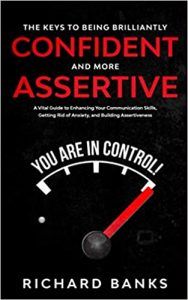
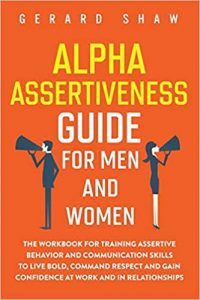
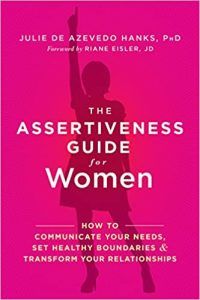
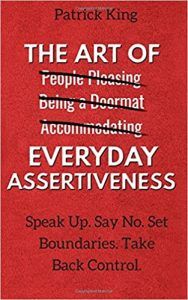
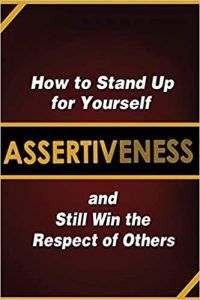
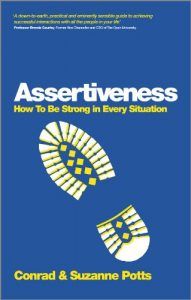
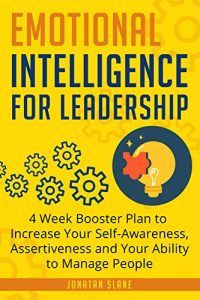
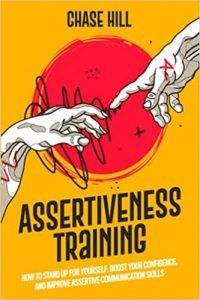
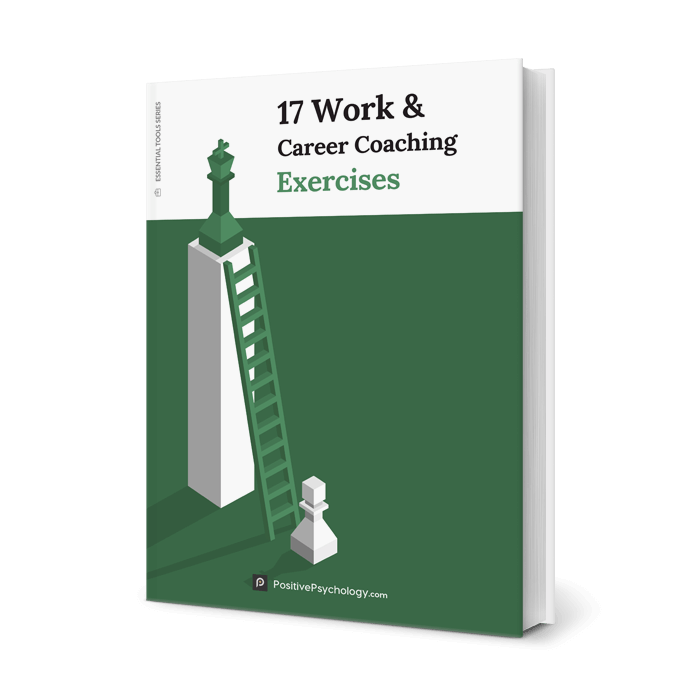
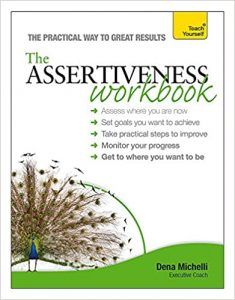
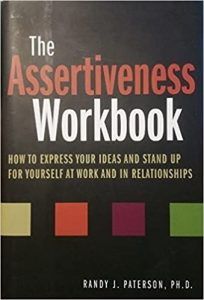
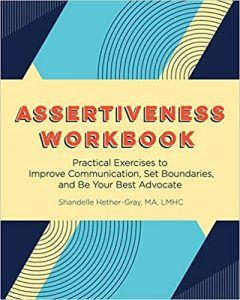
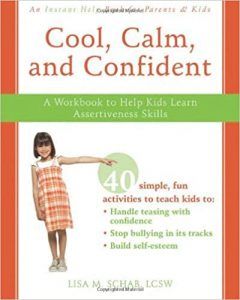



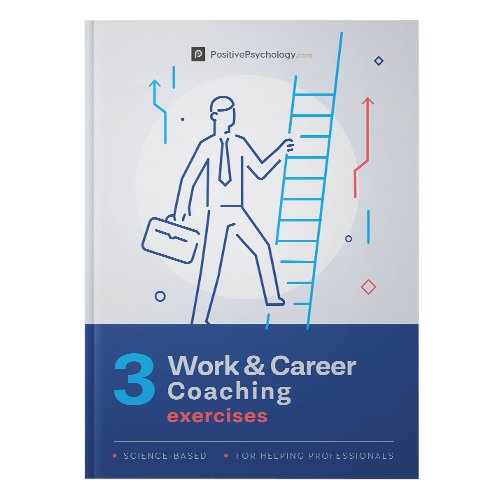
What our readers think
Thank you Gaby, your suggested books truly helps a lot. Thanks for sharing. Kudos to entire team for spreading positivity